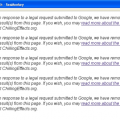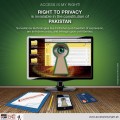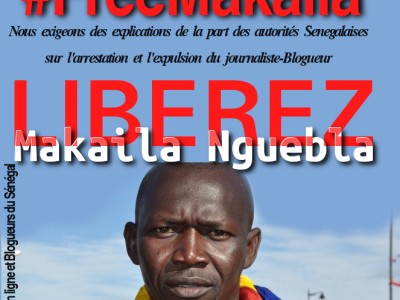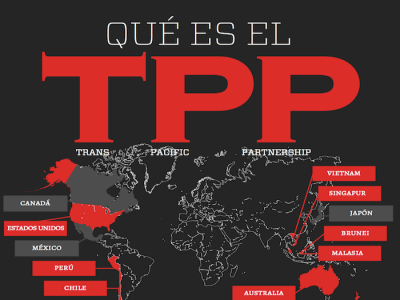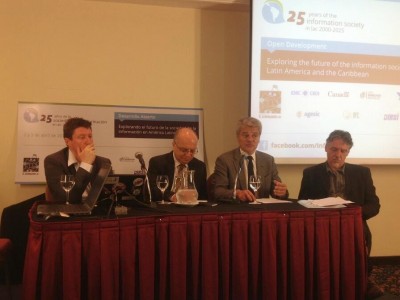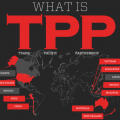Stories about Advocacy from May, 2013
Interview: Ali Abdulemam on Human Rights in Bahrain
Bahraini blogger, political activist, and Global Voices author Ali Abdulemam, who had been living in hiding in Bahrain for two years, appeared in London in early May, where he has been granted political asylum by the British government. Global Voices Advocacy Director Hisham Almiraat interviewed Abdulemam shortly after his escape from the island nation.
Latin American and Caribbean Governments Discuss Internet Policies
Government leaders and experts from across Latin America and the Caribbean participated in the 4th annual Latin American and Caribbean ministerial conference on the information society. On the agenda were topics like cyber security, open government, and the role of new technologies in innovation.
South Korea's Child Porn Law Blasted for Restricting Freedom of Expression
A new youth protection law in South Korea, meant to protect children by clamping down on child pornography, is being assailed for its broad language that labels net users who unknowingly download suspicious content and artists who depict children in their work as criminals.
Copyright Amendment Could Bring Web Filter System to Taiwan
Many Taiwanese believe that a recent proposed copyright amendment put forward by the government is a setback for democracy. The amendment would provide legal ground for ISP-level blocking of websites that violate copyright restrictions.
A Technological Solution to the Challenges of Online Defamation
When people are insulted or humiliated on the Internet, they often feel that someone should pay for the personal damages inflicted. Search engines have been this "someone" in many online defamation cases, a process that often results in search engines being forced to remove large amounts of content from search results. Is this the only way to address the issue? What if we could use technology to help satisfy the problem instead?
14-year-old Citizen Journalist Killed Covering Clashes in Syria
Omar Qatifaan, a 14-year-old media activist, was killed while covering clashes between pro- and anti-government forces in the southern Daraa al-Ballad area of Syria near the border with Jordan.
Advocates Challenge Use of FinFisher Surveillance Software in Pakistan
The Pakistani human rights organisation Bytes for All is challenging the use of invasive surveillance software by the government of Pakistan. FinFisher, produced by Gamma International, a UK-based company named by Reporters Without Borders as one of five "corporate enemies of the internet" and "digital era mercenaries," is notorious for its advanced spying and surveillance capabilities which are used to target human rights movements all over the world.
Bahrain Jails Six Twitter Users for Insulting King
Six Twitter users were sentenced to a year in prison each by a Bahrain court last week for allegedly insulting King Hamad bin Isa Al Khalifa on the micro-blogging site.
Chad-Senegal: A New Axis of Blogger Persecution?
On May 7, Chadian blogger Makaila Nguébla, who had lived in exile in Senegal for eight years, was arrested by Senegalese intelligence services and deported to Conakry (Republic of Guinea) from Dakar. Nguébla is the editor of the collective blog Makaila Info, an information and opinion site that is highly popular among Chadians inside the country and abroad. Advocates fear this may be part of a larger trend of online censorship and blogger persecution in Chad.
Interview: Chadian Blogger and Journalist Expelled from Senegal to Guinea
The Senegalese government expelled Chadian journalist and blogger Makaila Nguebla on May 8, 2013, sending him to Guinea. He explained his situation in an interview with Global Voices' Anna Guèye.
Internet Governance and ICANN: Reflections from Beijing
Last month’s ICANN meeting in Beijing was the largest in the Internet governance body's history. Held in Beijing, the meeting, featured a broad range of topics that often connected complex issues such as top-level domain name allocation with issues of free expression and human rights on the Internet. This post offers readers an inside look at the ICANN in its current state.
Hungary: Government Limits FOIA Transparency Law
Last week, Parliamentarians in Hungary took action to change the country's Freedom of Information Act (FOIA) in an effort to limit the scope of data accessible to the public under the law. The Freedom of Information Act, known as Act CXII of 2011 in Hungary, is vital to the work of Hungarian journalists who cover government activity and corruption. If President János Áder signs the amendment, it will become law.
Peru: How Will the TPP Affect Users?
The Trans-Pacific Partnership Agreement, a free trade treaty that looks to integrate the economies and markets of the Asia-Pacific region, could have adverse effects on Internet users' abilities to access and share information online. This post examines Peru's involvement in the TPP process.
Malaysia: News Sites Face Attacks on Eve of Elections
The general election campaign period in Malaysia has triggered what independent news site MalaysiaKini is calling “China-style censorship.” In recent weeks, independent news sites Harakah Daily and MalaysiaKini have suffered from DDoS attacks and connection disruption at the ISP level. With elections on May 5, both sites are calling on ISPs and government officials to protect the open Internet.
In Violation of Constitution, Ethiopian Blogger Will Face 18 Years in Prison
On May 1, the Ethiopian Supreme Court upheld the conviction and extreme sentence of award-winning online journalist Eskinder Nega, who now faces 18 years in prison. Mohamed Keita of the Committee to Protect Journalists said in response to the Court’s ruling, “The persecution of Eskinder and other journalists is the hallmark of a regime fearful of the opinions of its citizens.”
The Future of the Information Society in Latin America and the Caribbean
Nearly 60 specialists and members of civil society gathered in Montevideo, Uruguay, to discuss the future of the Information Society in Latin America in the Caribbean. In the two sessions, which took place on April 1st and April 2nd, attendees from all over the region tackled issues such as privacy, new cooperative business model and copyright.
TPP: Biggest Threat to Global Internet Since ACTA?
The United States and ten governments from around the Pacific region will soon meet to hash out the Trans-Pacific Partnership trade agreement (TPP). Negotiations of the agreement have been secretive from the beginning of the process, but based on leaked documents and the undemocratic nature of the entire process, advocates have every reason to be alarmed about the copyright enforcement provisions contained in this multinational trade deal.





